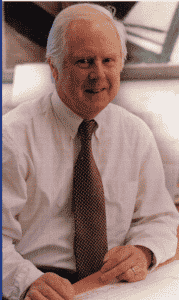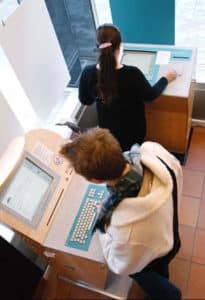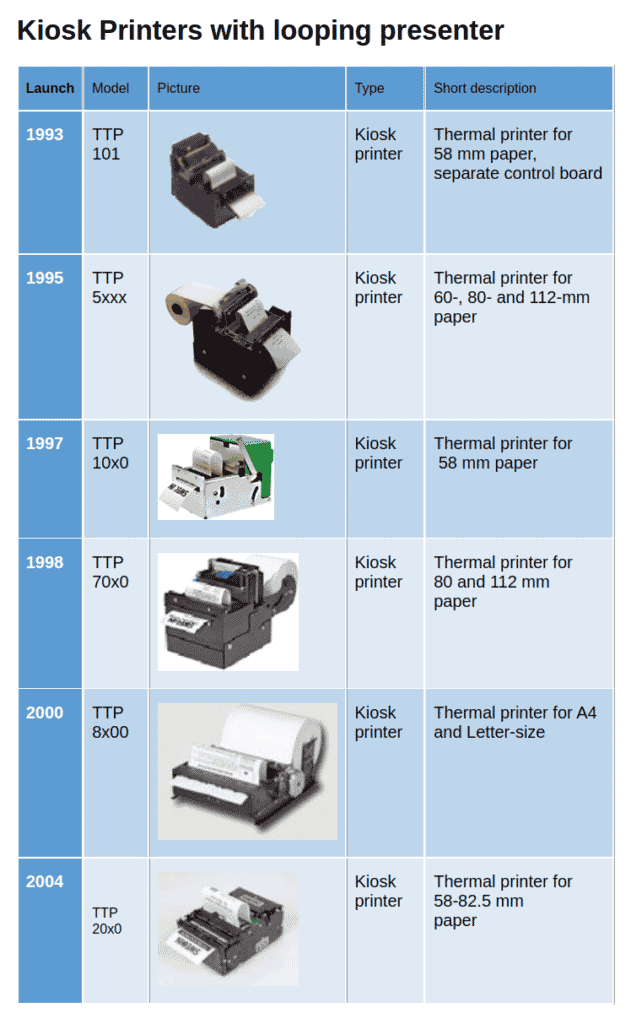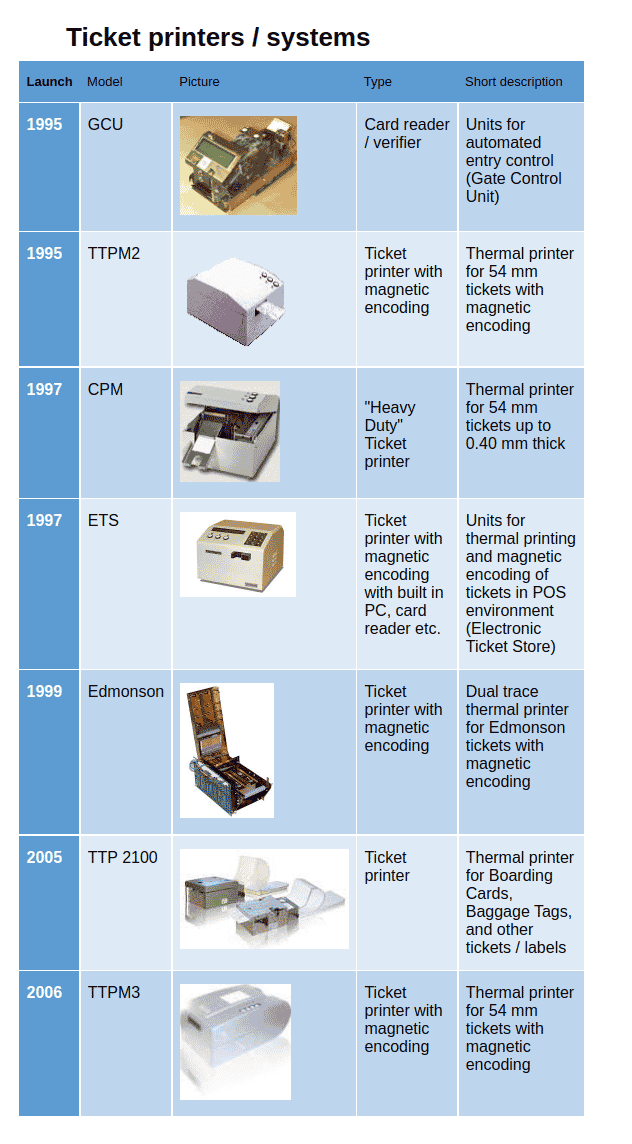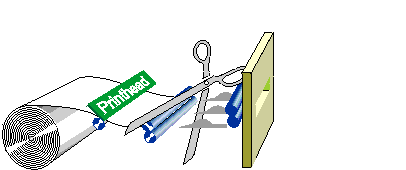
Kiosk History – Kiosk Printers
There has been a lot of activity with companies trying to locate replacement printers for the “trusty workhorse” 203s 403s. Admittedly Zebra started off a huge backend equity built up by Swecoin. Tommy Wincent was in a class by himself. Swecoin first gained solid foothold when IBM came along and subcontracted Swecoin to make their printers. Lots to learn about IBM approved packaging. Elaine Bresnick (ex-concert pianist) played the printer keyboards in virtual sense.
A few days ago the 30th anniversary of the looping presenter passed and we decided it was a good time to take a look at the history of what used to be the most dominant kiosk printer manufacturer in the world. Eventually reduced to a single plant in Poland and eventually died at some meeting of Zebra execs forced to focus on more profitable long-term goals. Can’t really blame them. They did a good job for a very long time.
More Kiosk Printer History – Comments and Background
- It was the Norwegian company Tomra and their reverse vending machines who started the story with Tommy designing TTP 101 for them. They stayed with Swecoin all the way and received the last kiosk printer ever manufactured by Zebra (KR203).
- Then came Wincor Nixdorf needing a reliable printer for 80 and 112 mm wide paper to integrate into their ATM’s, so Tommy designed the TTP 5000 for them and then made publicly available versions out of it.
- TTP 8000 was designed for the Swedish Employment service and built into some really neat wooden furniture by a company called Lefrako. The entire job-search-terminal idea was copied in Australia, but there they had to make it vandal proof so a hard steel and a keyboard where the liquid you poured into it came out in your knee. That reminds us of the NeoProducts Job Centre Kiosks (9,000 deployed in UK in one of the largest ever kiosk projects. Mike Smith of Neoproducts is a member of Kiosk Hall of Fame.
- For Swecoin US, Coinstar and KIS (now known as KIOSK) were the larger accounts. Here is old KIS website
- This was before the Zebra acquisition 2006 when Dresser Wayne became one of the really major users when Swecoin designed an intrinsically safe version of KR203 for them (they used TTP 2000 before that).
- IBM was there, and used several different printers (Swecoin sold a lot of TTP 2100’s to IBM/Embross for their boarding card kiosks), but now that we are name-dropping, actually HP was likely bigger…
- Swecoin manufactured in their own facility in Sweden.
- This factory was then sold and became a subcontractor to Swecoin.
- To rationalize high volume, products were moved to a larger Swedish subcontractor who later moved the products to one of their Polish plants, then to yet another.
- After the acquisition Zebra started to transfer all products to China where they were produced to the bitter end.
- Swecoin was late with adding Ethernet and companies like Custom took advantage of that especially in the healthcare space. Much more profitable to sell a printer for $1200 with an ethernet port that really never got used instead of reciept printers for $250.
- A shame that thing with Ethernet, Swecoin was late, and it only came with KR403.
- Ethernet was in the concept for the TTP8000 replacement. Swecoin presented a working prototype somewhere around 2008 or so. They never could build a business plan good enough to get an OK apparently.
- Same with Tommy’s last design, a 58 mm printer with only one motor but still with cutter and presenter. Two things survived from that effort, the electronics platform, and the object-based OS. Zebra still uses in low-cost Desktop printers.
- Swecoin was willing to go ahead on customer wishes and gut feeling, but it seemed Zebra needed proof of success before investing engineering resources.
- Summary of Elaine Bresnick comments — The printers were designed in Sweden by Tommy Wincent, a gifted mechanical engineer, and his team. Swecoin US (which Bresnick eventually ran) was a wholly owned subsidiary of Swecoin AB, headquartered in Stockholm. In addition to the loop presenter, the printers were prized for their small footprint, reliability, and durability (plus the awesome Windows drivers that Manfred Wilner developed and supported). As the business grew, company leaders outsourced manufacturing to a third party in Poland. Kiosk printers ranged from narrow 58s up to letter size paper width. In 2006, the owners accepted an offer from Zebra Technologies, a NASDQ corporation headquartered in Chicago, to purchase Swecoin AB.
We are guessing around a million printers in all. Not bad for one mans idea of storing paper while being printed so the untrained user couldn’t access it until cut and ready!
And if you need a replacement you have a lot of choices.
- StarMicronics – thermal printers of all types – receipt, POS, Kiosks, stands, cash drawers
- EVOLIS– Card printers
- Microcom Corporation – thermal, ticketing and custom printers
- Practical Automation – thermal, ticketing and custom printers
- BOCA Printers – the standard in ticket printers and now thermal receipt printers.
- Nanoptix – Your global provider of printing solutions and technologies for the Gaming, Lottery, Kiosk and Amusement markets
- SUZOHAPP – OEM Components
- Custom Spa Printers (Italy), Hengstler (Germany), Fujitsu, Epson, Pyramid Technologies and Nippon are often in the mix
Onto Swecoin kiosk printer history
Below is an overview of models, the years are not cut in stone as I don’t remember that well.
More Posts on Kiosk Printers
- Zebra Printers 403 and 203 End of Life Coming Up Soon(Opens in a new browser tab)
- I have a question about Kiosk printers(Opens in a new browser tab)
- BOCA Lemur-Z Replacement for Zebra technologies 403 and 203 Kiosk Printers(Opens in a new browser tab)
